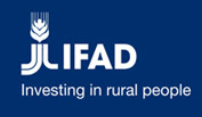The Indigenous Peoples now account for some 476 million of the global population in 90 countries, reports ITREALMS.
According the International Fund for Agricultural Development (IFAD), more than 476 million people from 90 countries define themselves as Indigenous Peoples and represents roughly 6 per cent of the world’s population, they account for 18 per cent of the world’s poorest people.
"Seven out of 10 are native to the Asia and Pacific region. Indigenous Peoples help preserve a significant portion of the world’s biodiversity extending across one-quarter of the globe's surface," IFAD official revealed to ITREALMS.
IFAD President Alvaro Lario while speaking at the 6th Global Meeting of the Indigenous Peoples’ Forum hosted by IFAD, pointed out that Indigenous Peoples are displaying tremendous resilience and creativity as climate leaders and stewards of nature.
"They are crafting practices and applying unique approaches that are invaluable in confronting the climate crisis,” Lario said.
Despite their traditional knowledge, Lario also said that the climate crisis is seriously threatening their livelihoods; farming, pastoralism, shifting cultivation, rotational agriculture, fishing, and hunting and gathering which all dependant on a predictable climate.
"Indigenous Peoples are particularly vulnerable to the effects of the climate crisis due to their close relationship with the environment," Lario said.
Communities, IFAD president said, have continued to defend their rights, as reflected in the UN Declaration on the Rights of Indigenous Peoples, and seek spaces for effective collaboration and advocacy in national and international fora such as this week’s forum at IFAD, while they fight for a place in the global climate debate, and be part of decisions that affect them.
Meanwhile, the right to free, prior and informed consent (FPIC), including the right of Indigenous Peoples to participate in any decision-making processes that affects them, continues to be overlooked by many, due to a lack of awareness, understanding and recognition of their perspectives, actions and governance systems.
Short URLs:
goo.gl,
mcaf.ee,
cli.gs
"Seven out of 10 are native to the Asia and Pacific region. Indigenous Peoples help preserve a significant portion of the world’s biodiversity extending across one-quarter of the globe's surface," IFAD official revealed to ITREALMS.
IFAD President Alvaro Lario while speaking at the 6th Global Meeting of the Indigenous Peoples’ Forum hosted by IFAD, pointed out that Indigenous Peoples are displaying tremendous resilience and creativity as climate leaders and stewards of nature.
"They are crafting practices and applying unique approaches that are invaluable in confronting the climate crisis,” Lario said.
Despite their traditional knowledge, Lario also said that the climate crisis is seriously threatening their livelihoods; farming, pastoralism, shifting cultivation, rotational agriculture, fishing, and hunting and gathering which all dependant on a predictable climate.
"Indigenous Peoples are particularly vulnerable to the effects of the climate crisis due to their close relationship with the environment," Lario said.
Communities, IFAD president said, have continued to defend their rights, as reflected in the UN Declaration on the Rights of Indigenous Peoples, and seek spaces for effective collaboration and advocacy in national and international fora such as this week’s forum at IFAD, while they fight for a place in the global climate debate, and be part of decisions that affect them.
Meanwhile, the right to free, prior and informed consent (FPIC), including the right of Indigenous Peoples to participate in any decision-making processes that affects them, continues to be overlooked by many, due to a lack of awareness, understanding and recognition of their perspectives, actions and governance systems.



No comments:
Post a Comment